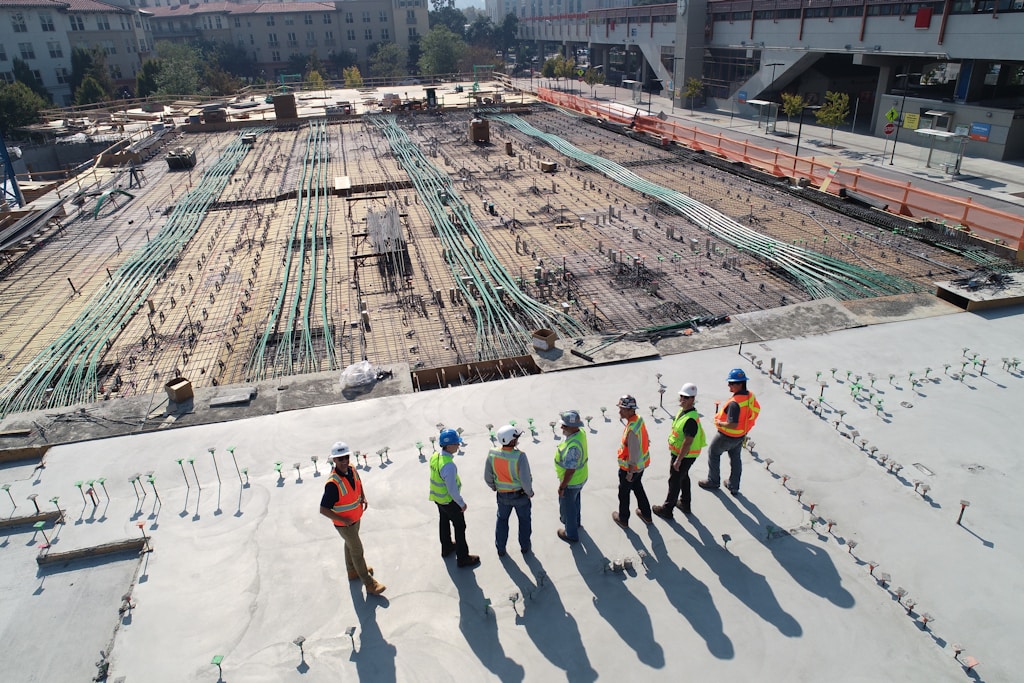
How to streamline construction estimating for faster project delivery
Effective construction project management relies heavily on accurate and efficient estimating. From material costs to labor, accurate estimates form the foundation of a successful project timeline. However, the process of estimating can often be time-consuming, filled with potential errors, and prone to delays. Streamlining this critical phase can significantly impact the speed of project delivery, ensuring that both contractors and clients benefit from quicker, more efficient outcomes. In this article, we’ll explore key strategies that can help optimize the estimating process, enabling construction projects to be completed faster without compromising on quality.
Invest in digital estimating tools
One of the most effective ways to streamline the construction estimating process is through the adoption of modern digital tools. Traditional methods like manual spreadsheets or paper-based calculations are prone to human error and can slow down the overall workflow. Today, construction management software and specialized estimating tools offer automated calculations, real-time data updates, and integrated cost analysis features that significantly reduce the chances of miscalculations.
By using digital estimating solutions, construction teams can centralize project data, improve collaboration, and ensure that estimates are updated instantly when changes occur. Additionally, these tools often come with templates and pre-set formulas, which can be customized based on the project's specifics, further speeding up the process. Leveraging digital technology not only reduces errors but also cuts down on the time spent recalculating or revising estimates, contributing to faster project delivery.
Standardize the estimating process
Another crucial factor in accelerating construction project timelines is standardizing the estimating process across teams and projects. Standardization ensures consistency in how estimates are calculated and presented, reducing the need for time-consuming revisions. By implementing clear guidelines and using repeatable processes, estimators can focus more on the details specific to each project rather than reinventing the wheel each time.
Developing a set of standardized templates, forms, and procedures for estimating can help maintain accuracy while speeding up the process. These templates should include all necessary line items, from labor and material costs to equipment and subcontractor expenses. Standardization also makes it easier for team members to collaborate and review each other’s work, ensuring that all potential oversights are caught before finalizing the estimate. The result is not only faster but also more reliable estimating, which contributes to smoother project execution.
For those looking for further assistance in optimizing their estimating processes, check out https://estimedes.co.uk/ for comprehensive solutions that can help streamline construction projects and ensure timely delivery.
Prioritize accurate data collection and reporting
The speed and efficiency of the estimating process are closely linked to the quality of data being used. If the information regarding labor costs, material availability, or other essential project components is outdated or inaccurate, estimates will need constant revisions. This causes unnecessary delays in project timelines and increases the risk of exceeding the initial budget.
One of the best ways to streamline construction estimating is to implement rigorous data collection and reporting systems. Accurate data, when accessible and updated regularly, ensures that estimators work with the most reliable information, reducing the chances of errors and adjustments down the line. It’s essential to maintain a clear communication line between different departments – from procurement to on-site managers – so that the most up-to-date data informs all estimates.
Construction companies that prioritize accurate reporting and real-time data tracking find themselves well-positioned to deliver projects on time and within budget, making this a vital strategy for improving overall project performance.
Enhance collaboration between departments
Successful project delivery depends on smooth communication and collaboration between various departments involved in the construction process. When estimators, project managers, procurement teams, and site supervisors work in silos, the estimating process becomes disjointed, and information gaps can arise, leading to delays.
Establishing regular communication channels and collaborative platforms where all relevant teams can input data, share feedback, and review estimates in real time can streamline the entire process. With cloud-based software solutions becoming more prevalent in the construction industry, teams can work simultaneously on the same estimate, avoiding duplication of efforts and speeding up approval times. This level of collaboration ensures that everyone is on the same page, and potential challenges are addressed early in the estimating phase rather than during project execution, which often leads to delays.
Conclusion
Streamlining the construction estimating process is critical to ensuring faster project delivery, reducing costs, and improving overall project efficiency. By investing in digital tools, standardizing procedures, prioritizing accurate data collection, and fostering interdepartmental collaboration, construction companies can optimize their workflows and deliver projects with greater speed and precision. Implementing these strategies not only enhances the estimating process but also sets the foundation for smoother, more successful project outcomes.
